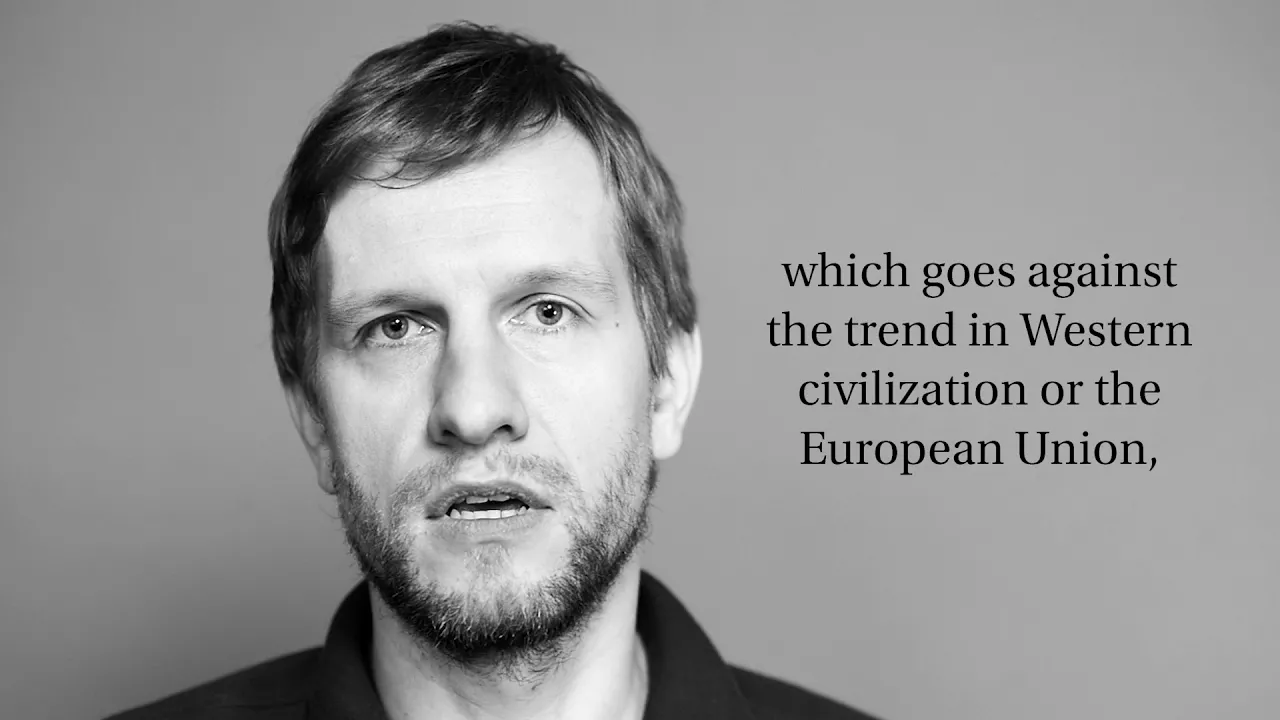The Seventieth Anniversary of the Universal Declaration of Human Rights
Is there anything to celebrate? An anniversary full of paradoxes
On the occasion of the 70th anniversary of the Universal Declaration of Human Rights this project presents interviews with selected figures who defend human rights in the Czech Republic and Slovakia.
In 1938, as the Second World War was coming to an end, the American author Pearl S. Buck won the Nobel Prize for Literature. It was she who authored the famous quote that “The test of a civilization is how it cares for its weakest members.” Buck spent a large part of her life in China. After returning to America she became a passionate defender of interracial adoption, minority rights and women’s rights. The Nobel Committee told her when awarding her the prize that “You have taught us to see the human individual among the masses.”
This is why we want people to actively come to know different cultures, because doing so teaches us tolerance (see the portrait of Muslim activist Eman Ghaleb below).
The state of human rights is a litmus test of democracy: It is an outcome of the discussion between the “tyranny of the majority” and the “acceptance of minority opinions as part of the mainstream”. It is an unending discussion about what is normal for any given society and what its values are - see Peter Weisenbacher about the discrimination against LGBT people. Weisenbacher also says that as far as the human rights of the majority society are concerned, in the Central European region the situation has never been as good as it is today.
Upholding human rights cannot happen without civil society institutions. Lucie Rybová is the director of the Czech Helsinki Committee, while Peter Weisenbacher and Zuzana Števulová direct human rights institutions in Slovakia and Veronika Šprincová is the director of an organization demanding equal representation by men and women in politics. Democracy is based on the prerequisite of the equality of all people, and Šprincová points out, among other things, the low rates of representation of women in politics in the Czech Republic.
Liberal democracy also depends on equal political competition and the freedom to publicly express opinions. Today, however, the opinion of the public is manipulated by the dissemination of disinformation and by the marketing of politics. As Zuzana Števulová warns, the escalation of hateful propaganda against various groups is a big risk. According to her it is necessary to constantly explain what human rights basically mean and what could happen if we were to lose them.
Human rights are also political rights (to freedom of speech, to hold political opinions, to assemble, etc.). The murder for hire of the journalist Ján Kuciak and his fiancee Martina Kušnírová at the beginning of 2018 in Slovakia woke civil society up, and as a result of political protests by the public, the highest governing officials were forced to resign. Zuzana Števulová perceives this achievement to be the greatest step forward for civil society and human rights in Slovakia of the last 20 years.
Human rights are enjoyed by all those who find themselves within our jurisdictions for various reasons, or who live in different corners of the world, and we want to support them all (and not just because our international obligations require it). This is, for example, the mission of the People in Need organization, which not only organizes development and humanitarian aid, but also supports projects assisting dissidents in authoritarian countries. After the fall of the communist regime, Šimon Pánek decided that human rights for this organization would mainly mean political rights, which he identifies with freedom. After the Velvet Revolution, he wanted tohelp abroad in places where people’s rights were still endangered and where they were unfree. In the Czech lands at that time the opinion predominated that each of us would do better to mind our own business, and we can still hear echoes of that time here to this very day. Pánek currently perceives human rights to mainly be about equality of opportunity – and that equality does not arise automatically, people must be aided in achieiving it, whether through civil society institutions or those of the state.
Barbora Latečková and Jana Plavec
Portraits of human rights fighters and interviews with selected figures from the Czech and Slovak Republics – an online campaign by the Prague office of the Heinrich-Böll-Stiftung on the 70th anniversary of the Universal Declaration of Human Rights (Autumn 2018).
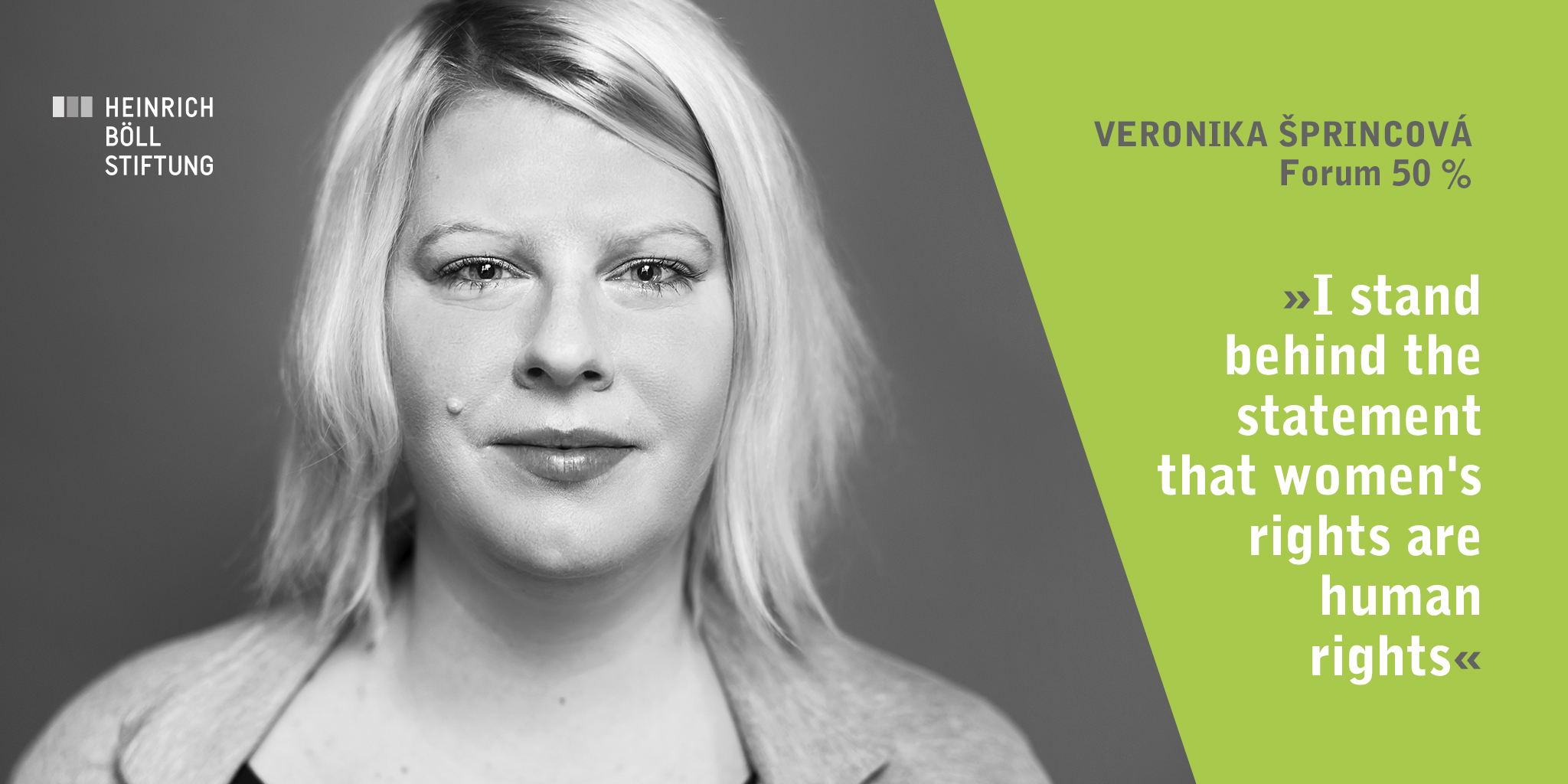
Veronika Šprincová (CZ), director, Fórum 50 %, Prague
“Women’s rights are human rights,” is a famous saying that Šprincová subscribes to. This idea was first formulated by American activists fighting for the abolition of slavery and for women’s rights almost 100 years before women were awarded the right to vote there. The public benefit organization Fórum 50 %, which Veronika leads, advocates for the equal position of men and women not just in society generally, but also in politics, where the representation of women remains low. Since 2015 she has chaired the Czech Republic’s Expert Chamber on Gender.
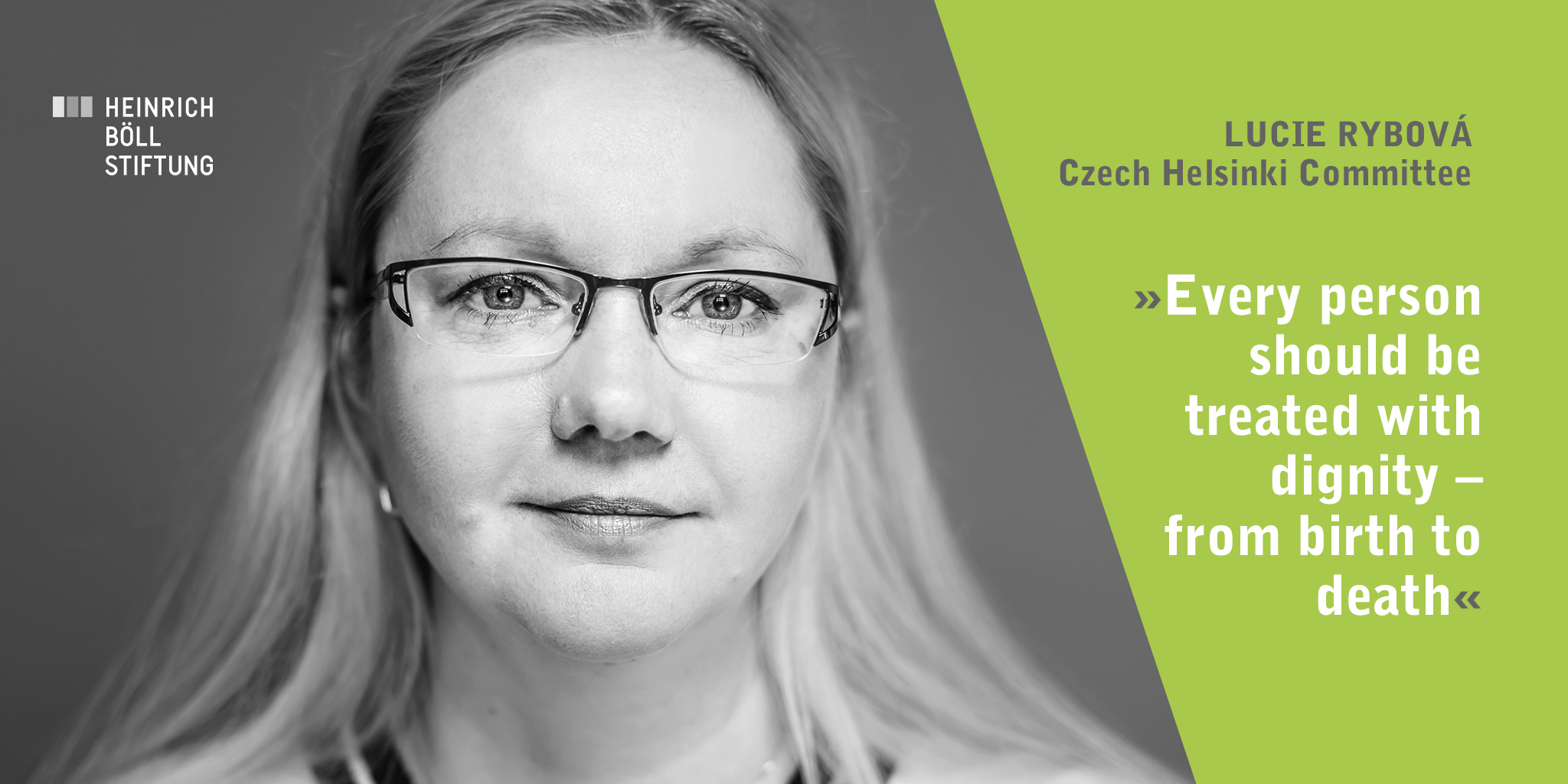
Lucie Rybová (CZ), director, Czech Helsinki Committee, Prague
Rybová’s family was persecuted during the previous regime, including by being imprisoned in psychiatric facilities. That led her to the work she has been doing for 30 years defending human rights. She has worked as the director of the Czech Association for Mental Health and has aided the development of the activities of the Kolumbus psychiatric patients’ association (e.g., the development of the institution of patient confidants). She also contributed to the creation of the Council of Europe’s recommendations on the implementation of the rights of senior citizens. Currently she is advocating for the rights of children to be heard and properly represented by attorneys in all proceedings. She also draws attention to the complex situation of children whose parents are imprisoned. Her motto is: “Each person has the right to dignified treatment, from birth to death.”
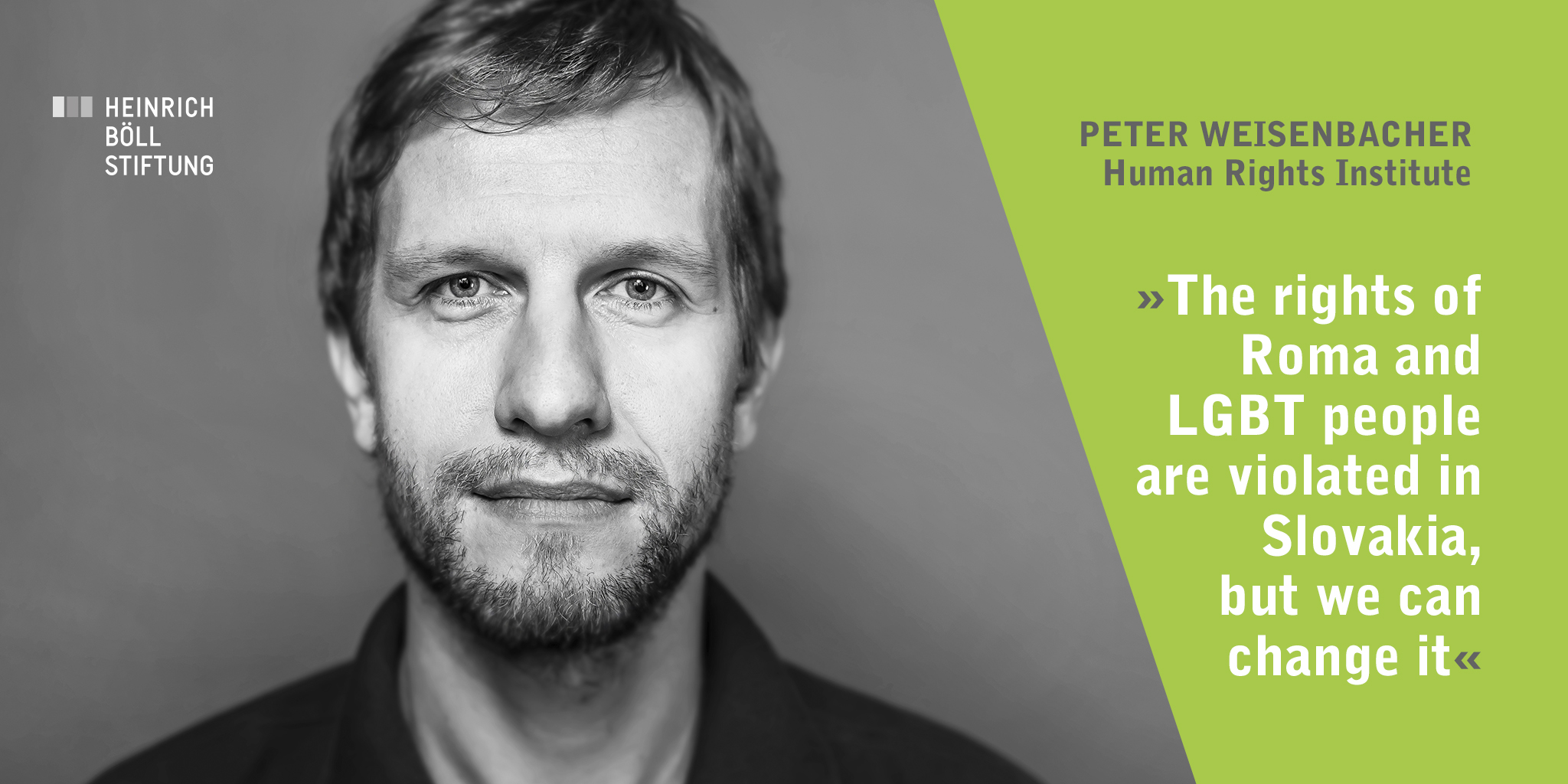
Peter Weisenbacher (SK), director, Human Rights Institute, Bratislava
“I am paying my debt to the previous generation, which made far greater sacrifices than we have,” says Weisenbacher, a civic activist and former chair of Amnesty International Slovakia. He was the co-founder and first director of Duhová PRIDE Bratislava, the LGBT pride march. “The situation of LGBT people in Slovakia currently has significantly deteriorated after the definition of marriage was changed by an amendment to the Constitution to mean a union of one man and one woman,” he says. He contributes to the dailies Pravda, SME and Hospodárske noviny.
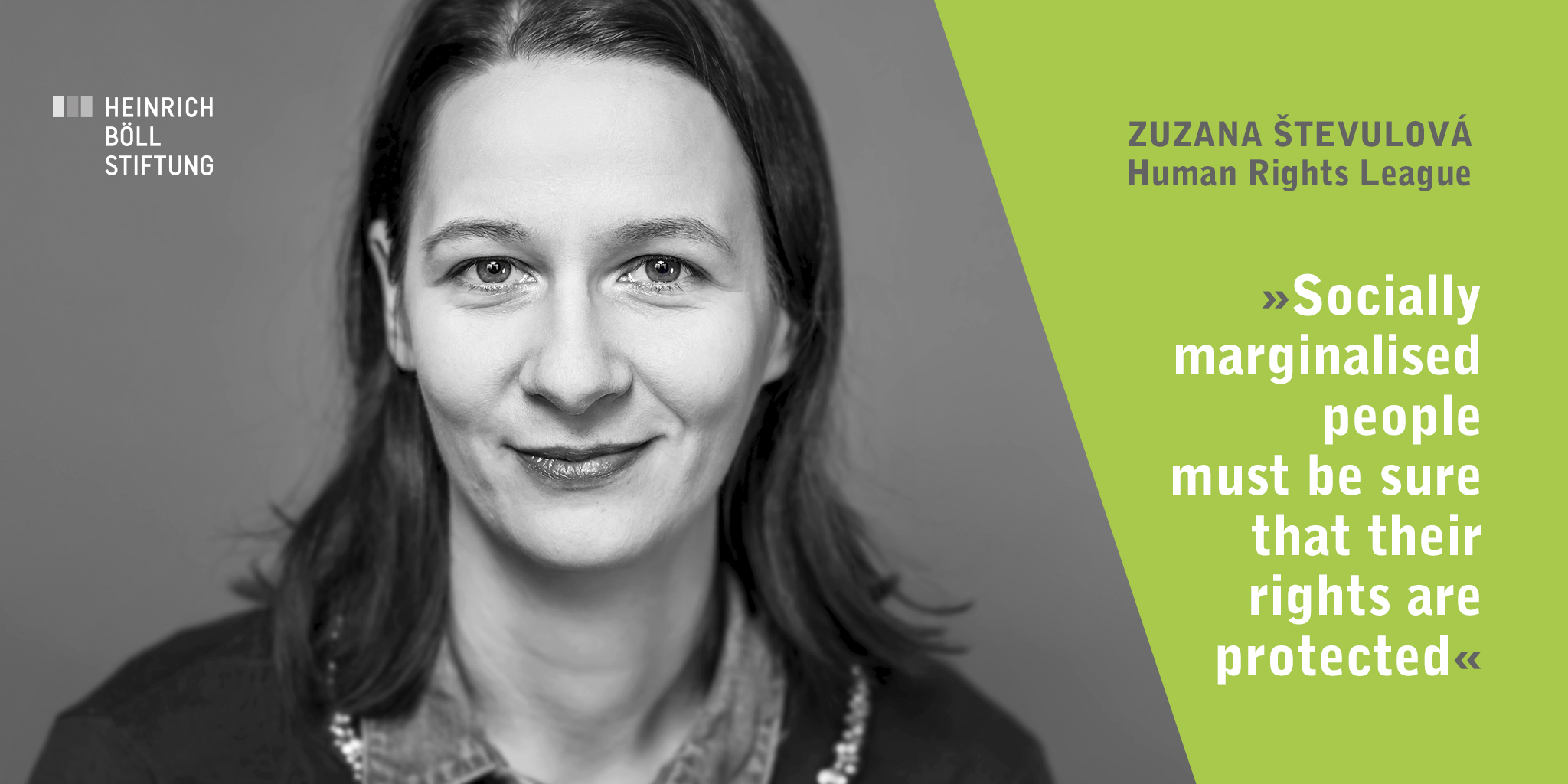
Zuzana Števulová (SK), director, Human Rights League, Bratislava
In 2016 Števulová became the first Slovak recipient of the International Women of Courage Award from the State Department of the United States of America, which is given to women who have demonstrated the courtage to stand up to wrongdoing. As an attorney she has aided many refugees in Slovakia with obtaining asylum after they were originally refused. “Refugees experience the worst human rights violations we can imagine,” she said when asked why she was assisting foreign nationals in detention facilities. She lectures at Trnava University and also contributes to the formulation of Slovakia’s integration policy.
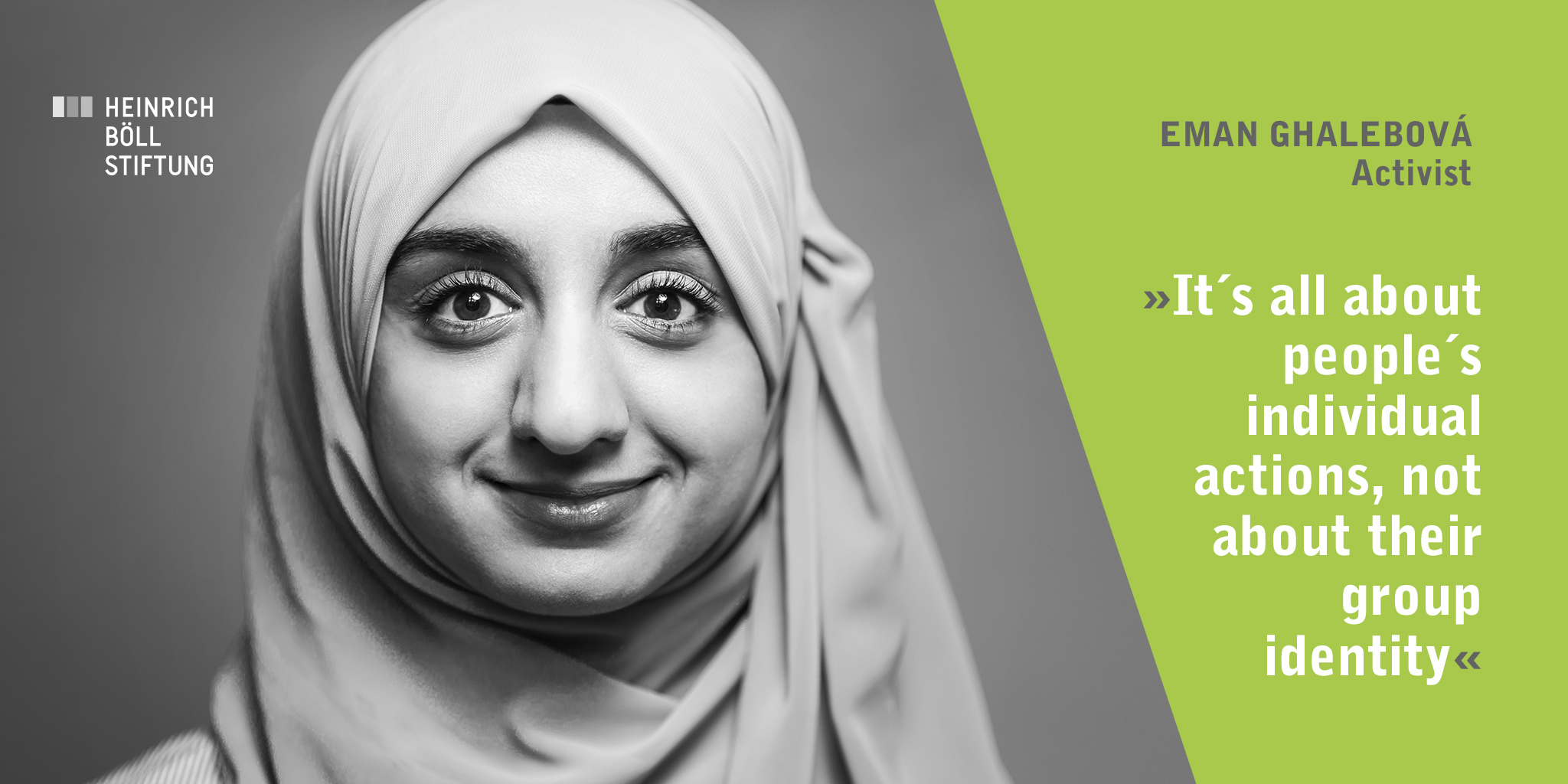
Eman Ghaleb (CZ), activist and student, Teplice
“My name is Eman, which means ‘faith’,“ Ghaleb told. She was born in Yemen but has lived with her family since the age of five in the Czech Republic. She initiated a dialogue between the majority community in Teplice and the Muslim community there. Czech people are tolerant, but they need to comprehend the fact that the principle of collective blame needs to be left behind. She condemns the violence committed by Islamist fundamentalists: “We judge individuals by their actions, not by their membership in a group.” She contributes to blog idnes.cz.
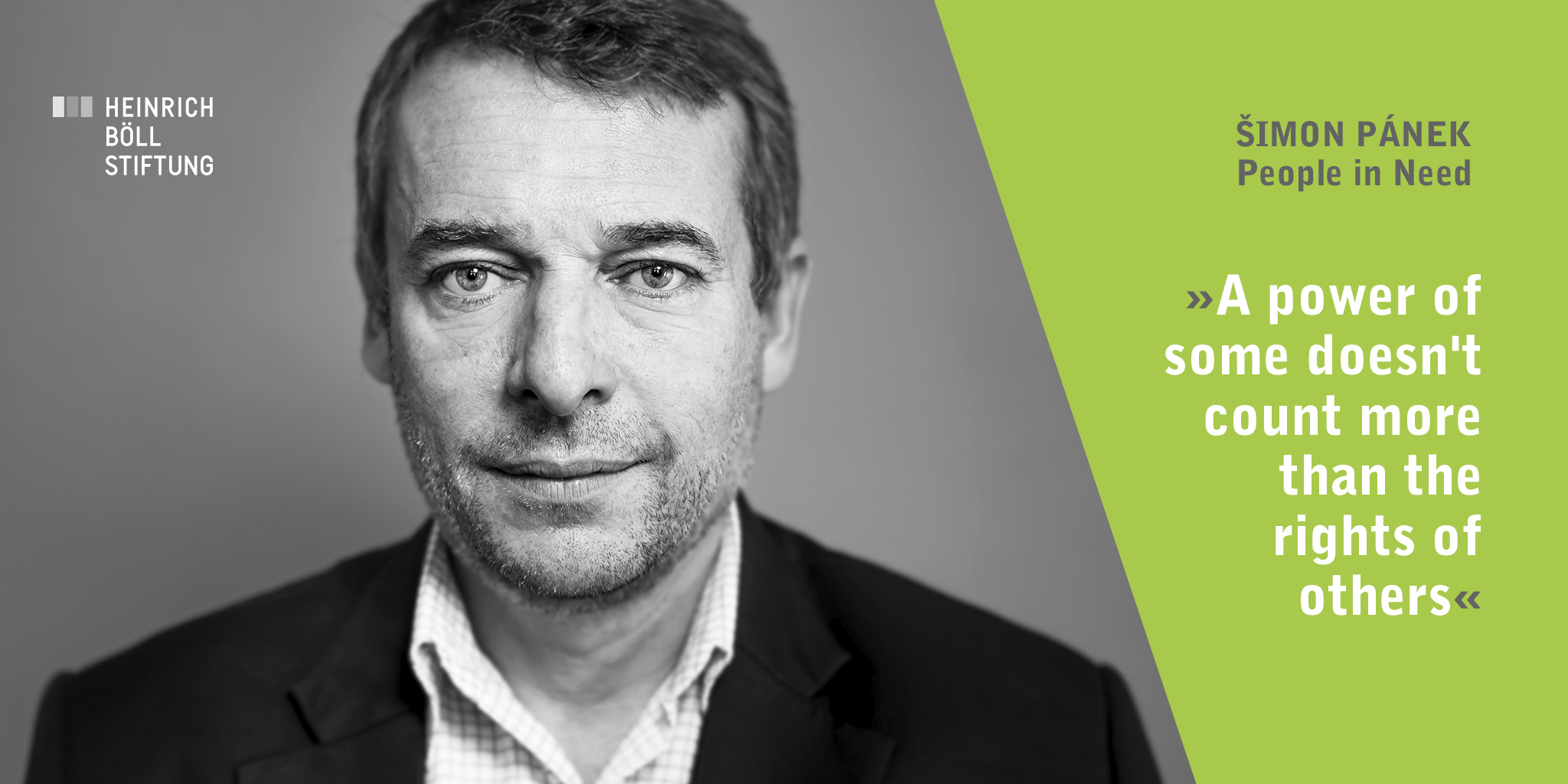
Šimon Pánek (CZ), director, People in Need, Prague
Šimon Pánek, who was a student leader during the Velvet Revolution in 1989, began aiding the needy instead of entering politics. He established People in Need, one of the most successful nonprofit organizations in the Czech Republic to have also made a name for itself elsewhere in the world. “My choice was certainly influenced by my family background. As a young boy I was in Scouts and I read many works by Jack London. Whenever I saw injustice around me, it made me angry,” he says. He is a recipient of the Memory of the Nation Award. He also received the Medal of Honor from President Václav Havel for his engagement in public affairs.
